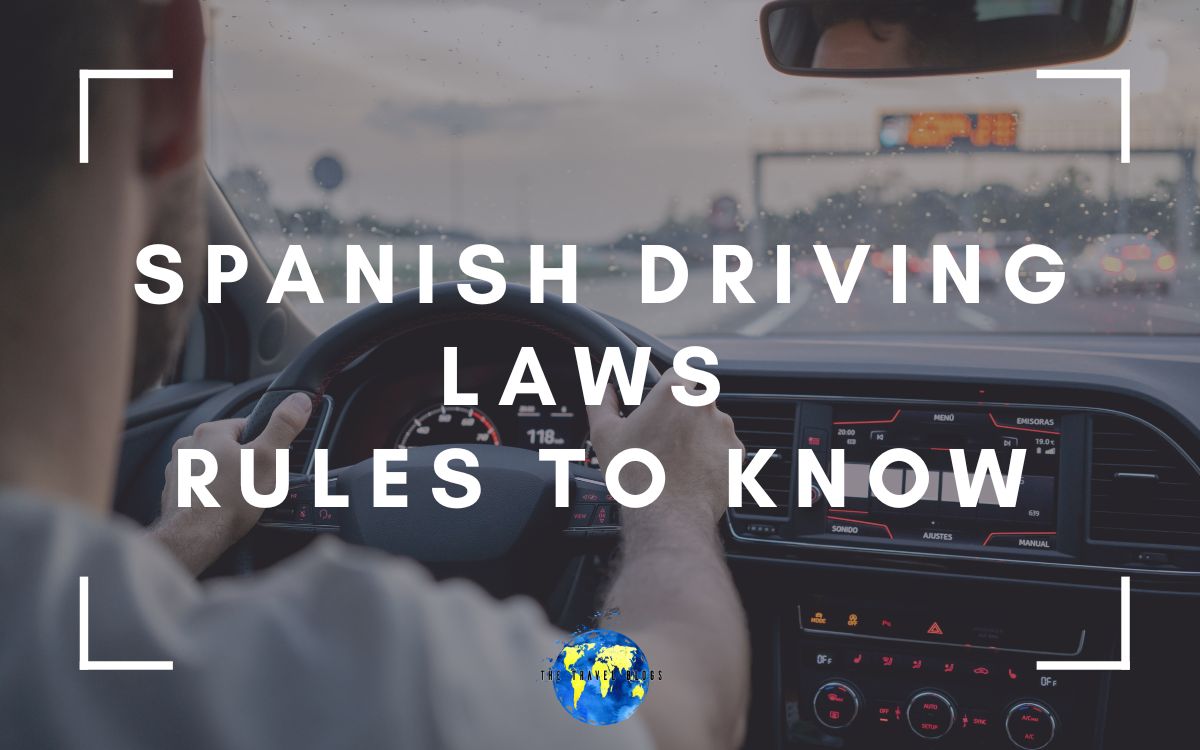Driving in a foreign country can be a bit of a challenge, it requires your full concentration and expertise. While you are probably a great driver in your own land, in Spain, it’s different. From the small things like the way the signposts look, to the bigger differences such as which side of the road you should be on, the Spanish road rules are different.
Something else that you need to understand is the Spanish driving laws. While you know all the rules of driving in your country, there will be some difference driving through Spain.
So, if you are thinking of hiring a car in Spain*, keep reading. In this guide, we’ll take you through some of the most important things you need to know about the driving rules in Spain.
*This is an affiliate link, if you book a car after following it to the website, I will make a small commission at no cost to yourself. If you would like to know more about The Travel Blogs affiliate partnerships, please click here.
Coming your way in this post - click to expand ->
Driving in Spain
As an English man in Madrid, I can certainly confirm that the inner city driving in Spain does take some getting used to. I find Spanish drivers are generally aggressive and unthoughtful. However, once you adjust to it, it’s not that hard to drive in Spain, especially once you break free of the city.

The roads in Spain are beautiful, wide and the inter-city roads are usually quiet. The price of petrol is not very pricey compared to the other European countries and the cost of hiring a car is low. You may find it a surprisingly cheap option to get around the country.
Driving on The Right
In Spain, they drive on the right-hand side of the road. If you are not yet used to then be sure to take things easy at first and pay extra attention when joining motorways, pulling out of junctions, and roundabouts, remember to give way to your left. These are the most common mistakes to make.
In my experience, if you are driving a hire car with the steering wheel on the correct side for the driving conditions, I found the adaptation period went really quickly. The difference is changing gears with your other hand seems to allow you to naturally switch and before long you will be feeling like a local.
However, if you are driving a British car in Spain it can be more of a challenge. Not only will your visibility be challenged due to your seating position, but your instincts will also be to drive on the left.
If this is a situation you are in there be sure to pay extra attention on the quiet roads.
Something I found helpful was placing a small bit of red tape at the top of my steering wheel. All it did was made sure it was always in sight and whenever I saw it it made sure my mind associated it with driving on the right so I never forgot.
One final thing to mention is to be sure that your motor insurance covers you to drive abroad. It is common sense to many, but with so many things to think about when planning a trip, don’t forget this key detail.
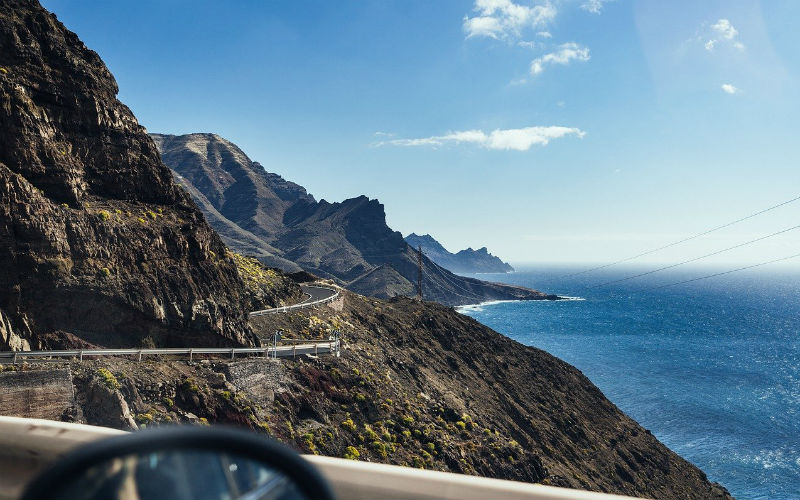
Spanish driving laws
The Spanish government is continuously trying very hard to ensure safety on the road. In reaction to seeing a year on year increase in road fatalities, the government has passed many new traffic laws in the last 5 years. These have had a seemingly positive effect with the number stabilising. It is still alarmingly high, but the country is definitely taking a step in the right direction.
So these are some of the important laws that you must keep in your mind while driving in Spain.
Driving fines in Spain
Having driven in Spain for a few years now, I can promise you will see almost all of these laws being broken regularly, especially the parking ones. However, that does not mean that it’s OK for you too and you should not be upset if you get a fine as the law is very black and white, some people just get lucky and don’t get caught.
That said, here is a list of the main traffic laws in Spain that will result in a fine:
- Not having a valid driving licence
- Speeding
- Drink driving
- Driving under the influence of drugs
- Reckless driving
- Using a mobile phone while driving
- Driving through a red light
- Not stopping at a stop sign
- Leaving the scene of an accident
- Double parking
- Illegally parking
- Not wearing seat belts
- Having too many passengers
- Not giving way
- Using the horn inappropriately
Those last two genuinely made me laugh. If I had the power to issue fines, I’d be able to fund the government for a year over the space of one weekend on those two laws alone ?.
There are also a few quirky laws to be aware of. One to be aware of, especially if you are visiting the warmer areas is the law regarding driving without ‘proper’ clothing or footwear. This relates to the driver’s capacity to control the vehicle and as a result, driving in flip flops could net you a €200 fine. Driving without a shirt on is something else that can make you fall foul of this law.
Feeling relaxed? lookout, driving with one hand or an arm outside of the vehicle can lead to spot fines of €100. Also, control your temper, taking your eyes off the road while having an argument may well be another €80.
If you want to read some other lesser-known rules of Spanish driving, this is an excellent article from Expatica.
So now we know what you can be fined for, let’s take a closer look at how you can fall foul of the main driving rules and what the repercussions will be.
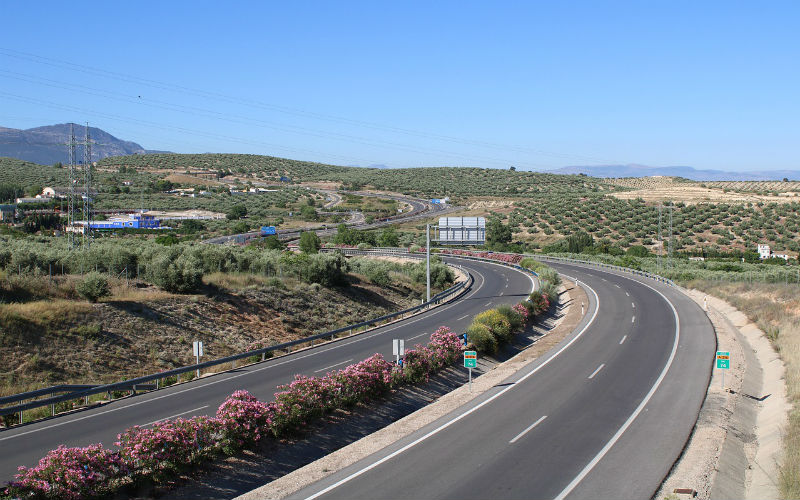
Spain speed limits
- Open road – 90km/h (56 miles per hour)
- Motorway – 120km/h (75 miles per hour)
- Town – 50km/h (31 miles per hour)
As with the rest of the world, the speed limit in Spain varies depending on the type of road. It is important to know what the limit is as the Guardia Civil (Spain’s super serious National Police) regularly performs speed traps and cameras are common. Especially on the main roads into and around cities.
Luckily the Spanish are pretty good at labelling their speed limits. The signs are the standard red warning circle with a white background and black number.
There is one other sign you will see from time to time, which can be quite confusing to British drivers: a blue sign with a white number on it. This is actually a recommended speed limit. While it is not a maximum speed by law, they tend to be in high accident areas and close to bends, so it is recommended to abide by them.
It can confuse us Brits because it is incredibly similar to our minimum speed limit sign.
Spanish speeding fines
The fines vary based on severity, as with most countries. The lowest fine you would face is €100 but this rises to €600 depending on how much over the speed limit you were caught driving. If you would like to see a full breakdown of fines based on what speed you were doing, check out this expat site.
Oh, and if you own a radar detector you may want to put it away during your time in Spain. if you are found with one while driving that will be a €200 fine.
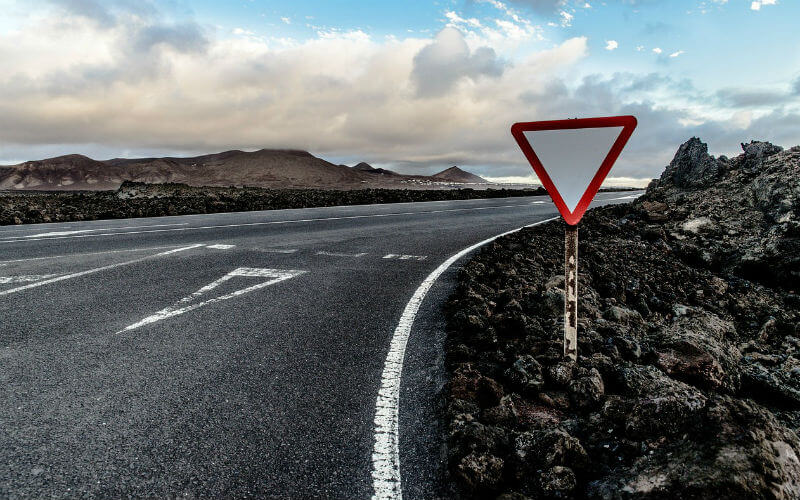
How to pay Spanish speeding fines
Fines issued via speeding camera will be sent to you in the post. If you are in a hire car, the procedure for handling speeding fines will be in your terms and conditions. Usually, the hiring company will use it as a good opportunity to make a little extra with the “admin fee”. Either they will pay the fine and you reimburse them with the admin fee.
Alternatively, they will pass on the details you hired with the police who will then send the fine directly to you. It is important that the address you use is correct as if you do not receive the ticket, it will not go away and you run the risk of bigger issues by not paying.
Once you have the ticket it is easily payable online via the DGT website. The details will be included.
If you are non-resident in Spain and are using a rental car when you are caught speeding, you may receive the fine via the hire car company or the car hire company may charge you an admin fee and pass on your details to the police.
Prompt payment can often save you 50% of the fine.
Driving under the influence: Spanish drink driving laws
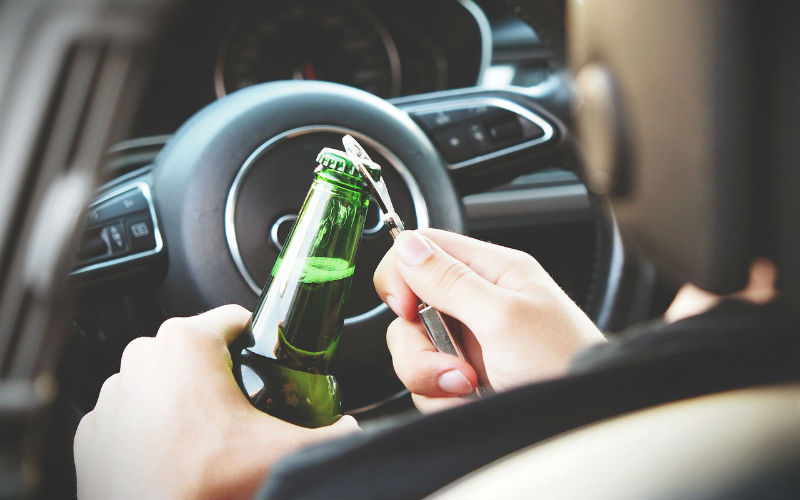
It’s worth knowing that they don’t mess around when it comes to drink driving laws in Spain and the enforcing of them,, especially when it comes to tourists. My overriding recommendation is just don’t walk the line. If you have had a couple of drinks, grab a taxi and just don’t worry about it.
The blood alcohol level limit
The legal blood alcohol level while driving is lower than in other European countries. The limit is 0.5mg BAC (Blood alcohol content). This compares to 0.8mg in the UK and USA. It is less if you are a professional driver or have only just passed your driving test, 0.3mg, which is basically nothing.
Drink driving fines in Spain
As with speeding fines, there is a scale involved. If you are slightly over the limit, with a BAC between 0.5 g/l and 1.2 g/l, it will lead to fines of between 300 and 600 EUR plus the license withdrawal for a maximum period of 3 months.
Driving with BAC levels over 1,2 g/l (or less if other factors occurred, such as dangerous driving) will lead to arrest and a court appearance with the likelihood of imprisonment from 3 to 6 months and a minimum fine of €1000. Additionally, your license will be confiscated for a period from 1 to 4 years.
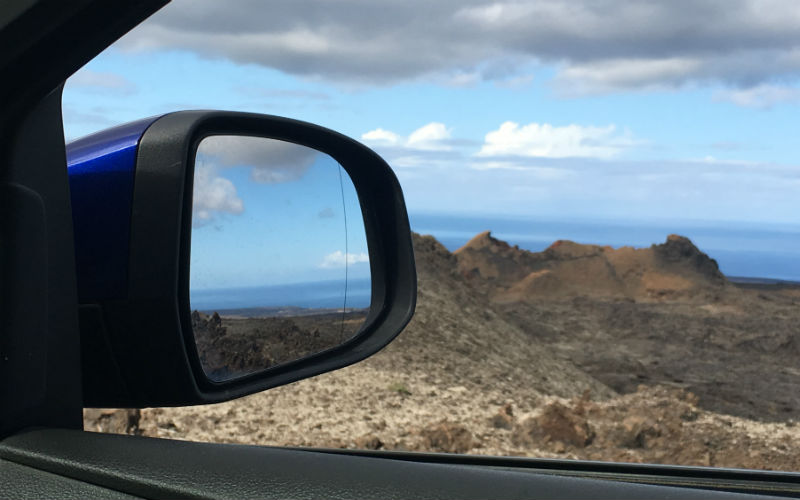
What if I refuse to blow?
If you are asked to blow a breath test you don’t really have a choice. Refusal to provide a sample is a criminal offence with a sentence for an imprisonment of 6 months to 1 year and the driving licence withdrawal for a period from 1 to 4 years.
What happens if you get caught drink driving in Spain?
It depends on how far over the allowed BAC you are. No matter what you will not be able to drive that car any further. If you have a passenger with a valid license and blows under the allowed amount, they will be allowed to drive the car and you will be on your way.
If this is not an option, you will have to get a taxi and the car will be towed and stored, all at your expense. The fees will have to be paid before you can get your car back.
If you are not a resident in Spain with a valid ID, the odds are you will be expected to pay the fine on the spot. The Spanish Police have the authority to accompany you to a cash machine or your accommodation for you to retrieve the money should you not have enough on you in person.
Remember the police and Guardia Civil in Spain are very honest and you should not try bribing them when they are on duty. This will only land you in more hot water and any such activities might lead you to jail with some serious accusations.
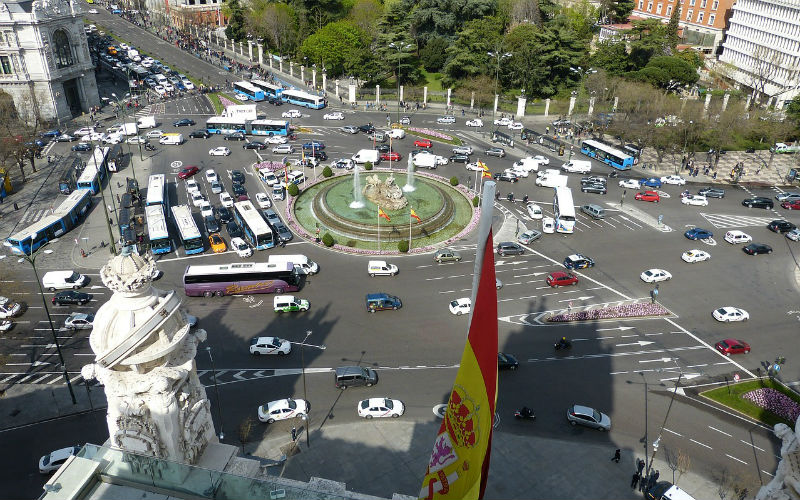
Now, if you are caught seriously over the limit, with a BAC of 1.2 mg/l you will be arrested at the roadside and taken to the police station for a further test. Should you fail that test too, things will be put in motion for a quick courtroom appearance.
As above your car will be towed and stored at your expense.
In court, you can expect a minimum fine of €1000 and your licence to be confiscated, even if it is a UK licence. However, a driving ban in Spain is not a ban in the UK, nor does it mean that you do not hold a UK licence.
You will be able to legally drive back in the UK, or anywhere else other than Spain, but you will need to contact the DVLA to get a letter of authority or some other form of paperwork to cover your missing driving license.
Car seats for children in Spain
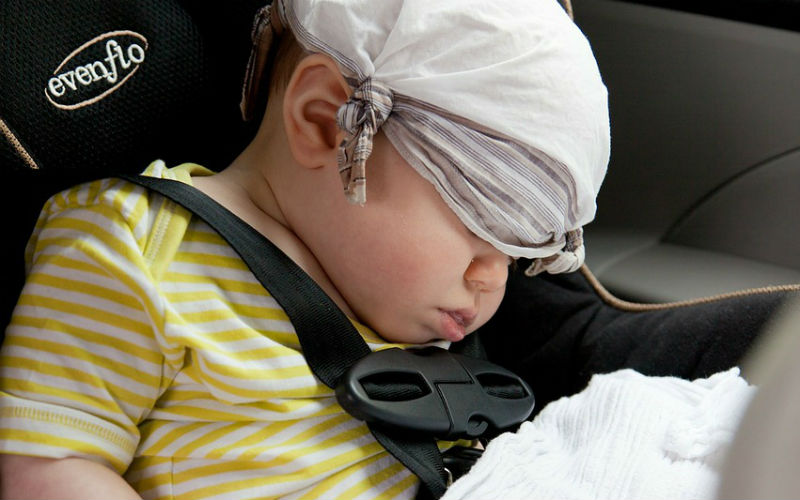
If you are travelling in a car with your kids, you will need to know the regulations surrounding car seats. Due to the risk involved, they are enforced with the same vigour of speeding or drink driving, so it is best to know and adhere to the rules.
When kids need a car seat in Spain
- Children to sit rear-facing car seat until they are at least 15 months old.
- Children under 12 or under 135cm (4 and a half foot) must not sit in the front seat.
- Children less than the mentioned size may only take a front seat if there are smaller children in the back seat.
- A booster seat is required by law if a child is below 135cm (4 and a half foot) and still highly recommended (but not legally) between the size of 135cm – 150cm (4 foot 9).
If you are found breaking any of the laws above, you can be expected to pay an on the spot fine and remedy the situation before being allowed to drive away. in the event that this is not possible, your car is at risk of being towed and stored at your expense.
However, above all, these laws are not here to make money and to catch you out, they are there to protect your children, so it should be simple common sense to be as safe as possible.
If you are hiring a car in Spain with kids, be sure to check the cost of a child seat. Some companies charge a daily fee for them (which I feel is grossly unfair). the cost ranges from € per day to €16. However, some companies offer a free car seat. We recently hired a car with Cicar in Lanzarote who includes seat hire in their prices. Be sure to check this out.
Overloading a Car
It is a serious offence in Spain to overload a car. You must not have more people than the total number of seats in a car. If you squeeze more people in than the car is built for you will face fines of $300 Euro and someone will be left to get a taxi back as you will not all be allowed back in to continue your journey. In fact, the police will also have the authority to seize your car if they don’t like you.
Overtaking and left turns
One thing Spain does very well is clear indications for when you can and can’t overtake. As with most of the world, the line in the middle of the road is your guide. If is it a solid white line then you may not overtake, it is a broken line, then you can. As well as the line there is are regular signposts to indicate overtaking zones.
One other thing to be aware of is if it is a solid line you are officially not allowed to cross it at all. This also includes making a left-hand turn. If you need to turn left you should continue until you find a junction or roundabout to double back on yourself and perform a right turn instead. If a left turn it OK, the line will be dashed by the turn.
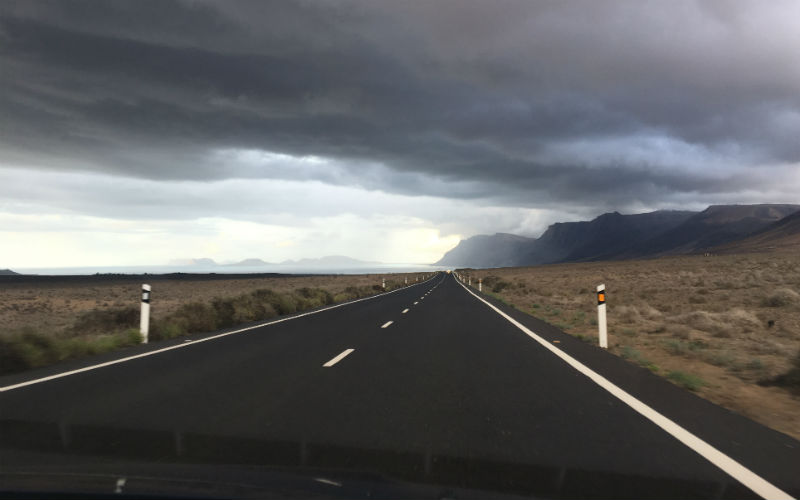
What safety equipment must I have in my car to legally drive in Spain?
To be safe on the Spanish roads, the law requires you to travel with certain equipment in case you break down or are involved in an accident. This is a list of what you need to carry in your car if you are driving in Spain:
- Two warning triangles, one for the front and one at the rear of the car.
- Reflective jackets. It is not compulsory but it is safer to have one in your car. If you are found walking on the motorway hard shoulder without one, you can be fined.
- A car must be fully equipped with front and rear seatbelts.
- If you wear glasses you need to keep a spare pair in your car.
- A country indication sticker. If your number plate does not have a built-in country code, you will have to attach the sticker to the rear of your car.
- If you are driving a British car abroad then headlamp beam deflectors must be attached to avoid dazzling other road users unnecessarily.
Can I drive in Spain with a US License
Yes. If you are A US citizen with a United States driving license then you can drive in Spain, but you have to be sure you bring all the correct paperwork.
For driving in Spain with us license you will need a valid passport and your US driving license and you do need to purchase an International Driving Permit (IDP). If you get stopped without this you could face a fine of €200.
An IDP is a supplement document to be used with your US driving license, you do need both.
But don’t worry, they are easy to get. You can get it at your local AAA office or by Mail. Check out the AAA website for full details on how to get it. The cost is just $20 and a little bit of effort, I’m sure you’ll agree a much better idea than a €200 fine and a lot of feeling uncomfortable in front of a Spanish policeman.
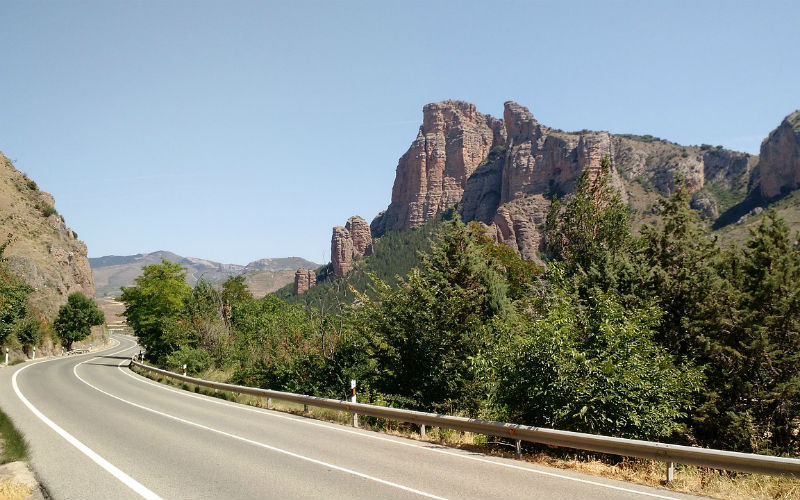
More FAQs
Do I need an international driving permit Spain?
It depends on where you are from. As mentioned above, if you are from the US then you certainly do. If you are part of an EU country then you will not. We are still waiting to see what Brexit will throw our way. It is expected the British drivers will need an IDP for driving in Spain from the 1st of July, however, it does depend on if a deal is agreed.
All other countries it is worth checking before you go to be on the safe side. To be on the really safe side, get one anyway. if you travel a lot they are useful and they are really cheap considering the trouble you will avoid if you have one.
Do the toll roads accept credit cards
Many of the main, inter-city motorways are toll roads. they are marked with the prefix of the letter R. So if you see a signpost pointing you to the R-5, it will be a toll road. There are usually also M-roads and A-roads as alternatives.
if you do find yourself on a toll road unexpectedly, don’t worry, they do accept cards. Above the toll booths will be a large sign indicating if it is cash one, credit card or a large T symbol for drivers that have the Telepass. don’t go through that by accident as you will receive a fine.
What is the legal driving age in Spain?
The minimum age for obtaining a driving license in Spain is 18 years old for a car and 16 years for a motorcycle.
What is the drink-drive limit in Spain?
It is really not a good idea to drive in such a state. However, in Spain, the legal limit of the drink-drive limit is 0.5mg of alcohol per ml of blood. If you are caught going beyond the limit then you might face serious consequences. More of that above in the drink drive section of this post.
Do I need to wear a seatbelt in Spain?
It is mandatory in Spain to wear a seatbelt while driving. I’ll never understand why people don’t wear seatbelts, but if you choose not to you will have a fine of 200 Euro.
On top of that, if you become a victim of an accident and the insurance company finds out that during the incident you were not wearing your seatbelt they will refuse to pay for the claim of personal injury from you.
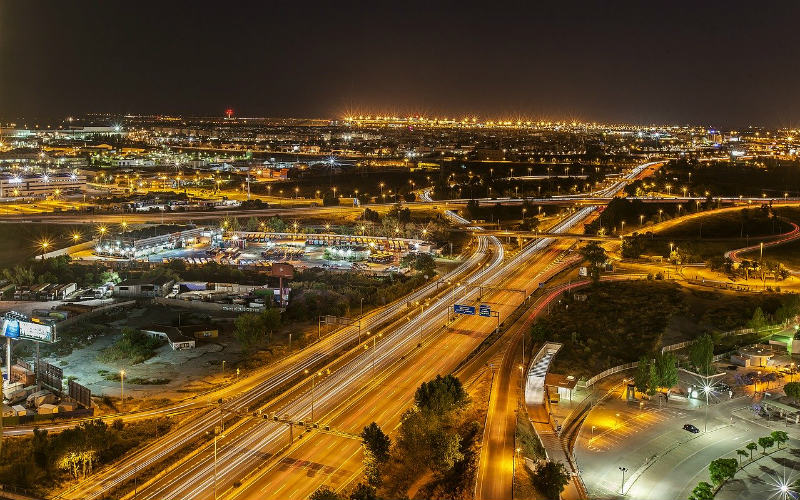
Final Words on Spanish driving laws
Discovering Spain by road is the best way to see it. There are so many hidden gems and small villages that make great stops that you miss if travelling by public transport between the main cities.
In fact, one of my all-time favourite roads runs from San Sebastien to Bilbao,. it is stunning as you climb the cliffs that overlook the Atlantic ocean.
The laws are all common sense and put there for public safety and to reduce road deaths. should you fall foul of anyone you have no-one to blame but yourself. Just know the Spanish police won’t go easy on you because you’re a tourist, you will be fined at the roadside and taken to an ATM if necessary. You will also get your car impounded at your expense if you can’t continue driving for whatever reason.
So with those facts in mind, don’t ruin your holiday by breaking the law, be good, be courteous and be not in prison.
[starbox]

Are you a Travel Blogger?
If you want your blog to be added to our map be sure to check out our submit your blog page here: https://www.thetravelblogs.com/submit-your-blog
Continue searching for travel blogs from Europe
[custom-mapping map_id=”1195″ height=”400″]
Recent blog posts from Europe
[pt_view id=”7c0c5a6gyb”]
